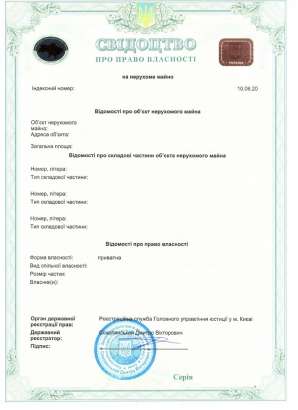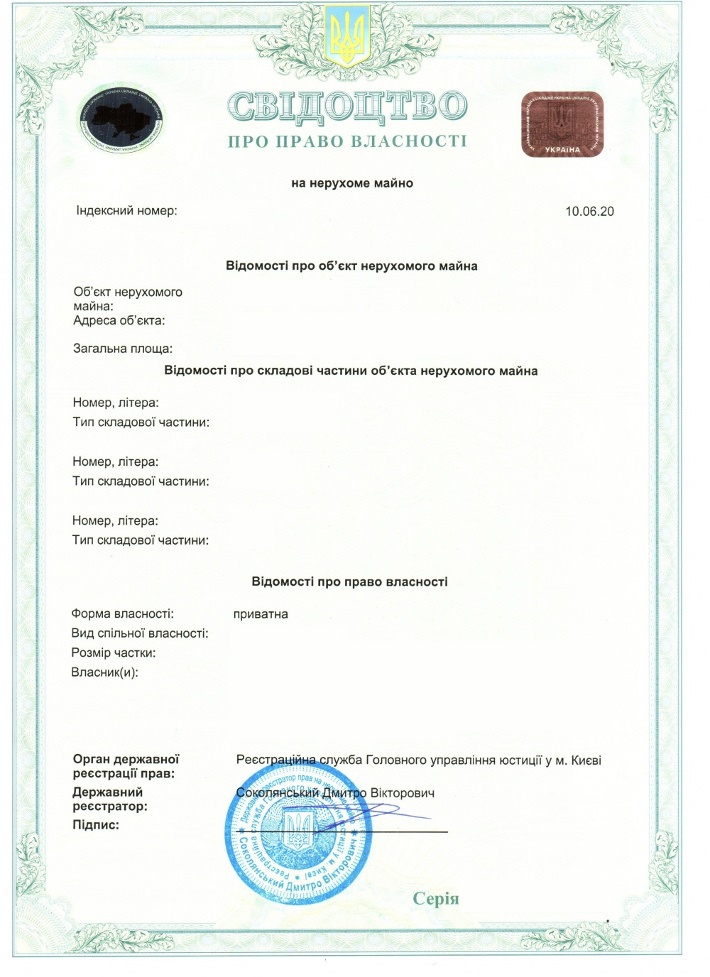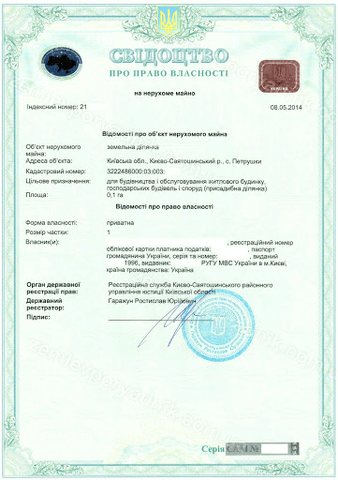How not to buy an apartment in Ukraine with debts for utilities?
Cost of services:
Reviews of our Clients
... our work on joint projects assured us of your high level of professionalism
For a long time, it was widely believed that notarizing and analyzing the documents presented for the property transfer agreement would sufficiently ensure the buyer's confidence in the reliability of the property being purchased.
However, court precedents have shown that notarized contracts do not provide an absolute guarantee of rights, and such contracts can be deemed invalid (void or contestable) by a court of law.
One of the most common issues when buying real estate in the secondary market is unknowingly inheriting substantial debt for utility services along with the property, such as outstanding bills.
-
Who should verify the existence of utility debt and when should this verification be done?
-
Who is responsible for settling this debt when selling the property?
-
Why is it not advisable to settle the debt with the seller prior to notarizing the agreement?
Finding answers to these questions can help you avoid potential risks when purchasing property. While there is a more reliable approach: rely on us to conduct a comprehensive property inspection before making your purchase. You can find the cost of the inspection here.
How to verify utility payments when purchasing property and what to look out for?
Simply checking the latest payment receipts for utility bills is not enough. During the legal due diligence process, we go a step further and request reconciliation statements from the utility service providers. This allows us to ensure that there are no outstanding payments or, on the contrary, to identify any outstanding debt owed by the buyer.
We also pay close attention to and compare the meter readings with the latest records provided by the utility service operators. If there are any outstanding utility payments, we cross-reference this information with the court registry and debtor registry. Additionally, we analyze the reconciliation statements obtained from the utility service providers, which are provided by the seller upon the buyer's request.
If, during the verification process, we find that the seller is listed in the debtor registry, we strongly advise against entering into any preliminary agreements or making advance payments. It's important to note that notarizing such agreements without the creditor's consent is not recommended.
You may also like: How to Verify a Land Plot in Ukraine Before Making a Purchase?
Verifying the Property Seller for Legal Proceedings and Debts
It is essential to perform a comprehensive check to determine if there are any encumbrances on the property, such as tax liens.
During the verification process, if we uncover any ongoing legal proceedings, we conduct a thorough examination to assess whether the seller intends to sell the property to avoid further enforcement actions.
While the new owner is not liable for the previous owners' debts related to housing and utility services, it can still pose a problem for the buyer if the service provider discontinues services at that address until the debt is fully paid off.
You may also like: What Should Property Owners in Ukraine Do During the War While Abroad?
Why it's not advisable to repay the seller's debt before notarizing the agreement
There is a common practice where sellers accept upfront payment from buyers with the intention of using it to settle their outstanding utility debts, while the main sales agreement is to be finalized in the future. In such cases, the parties enter into a preliminary written agreement. However, it is important to note that, according to the law, these preliminary agreements must not only be in writing but also notarized.
Moreover, the legislation does not provide the option to legally compel the seller, based solely on a preliminary sales agreement, to enter into the final sales agreement for the property in the future. The only recourse available to the buyer is to seek a refund of the funds (advance payment) made under the preliminary agreement. This raises the question of whether the seller will willingly refund the advance payment or if legal action will be required. Therefore, it is generally more advisable to negotiate with the seller for a reduction in the property price equivalent to the outstanding utility debt or for the seller to settle the utility debts before the agreement is finalized.
What does the notary verify when concluding a sales agreement?
The notary verifies the following:
- Transferability of the property (liens, mortgages, or ownership rights).
- Seller's details (the legal capacity of the seller, examines their documents, ensures the consent of the spouse if required, and checks for any presence on sanction lists etc.).
- Buyer's details (the legal capacity of the buyer, the necessary consents of the other spouse, the source of funds, the quantity and ownership of agricultural land etc.).
However, it's important to note that the notary's role primarily focuses on verifying the legality of the transaction and the parties involved, rather than assessing the legitimacy of the seller's previous acquisition of the property. Disputes often arise regarding the latter.
When government registries became accessible, various online services emerged that allowed individuals to check property information. People would obtain extracts from these registries and attempt to draw their own "legal conclusions" based on the information they received.
Transferring information to electronic formats doesn't determine the level of risks involved. The registry, in essence, serves as a means of accessing information. However, it's important to question the accuracy and reliability of the data contained within the registry, as they may not always reflect the actual reality.
Suppose a small retail kiosk is registered in the registry as immovable property. If someone purchases this property, could there be a possibility of future challenges to their ownership rights by local authorities or the prosecutor's office?
Another scenario involves a developer who has obtained all the necessary permits for construction. However, if the land allocated for the construction was done so unlawfully, it raises concerns about whether the developer will be able to proceed with the project and whether there might be a legal dispute initiated for the return of the land to state or municipal ownership.
We examine these aspects thoroughly for our clients. It is challenging for individuals without legal knowledge to independently interpret data from open sources, provide a legal assessment, and identify potential "weak points" that require attention.
We offer you the opportunity to proactively safeguard your funds. Our range of services includes:
- Comprehensive property verification, assessment of the property, seller, and the legal contract for property transfer.
- Transaction assistance with trusted notaries.
- Assistance with opening a dedicated bank account in Ukraine specifically for property-related payments made by foreigners.
The cost of property verification can be found here.
The cost of legal support during the process can be found here.
For further information, please don't hesitate to reach out to our team of specialists!
Our clients







